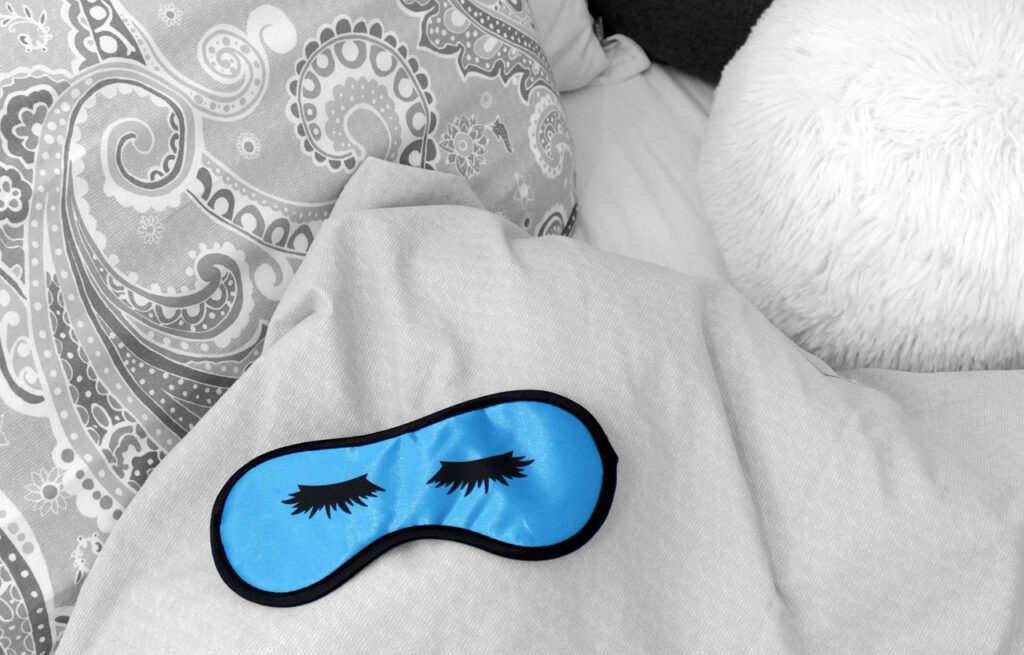Does it seem that a good night’s sleep has become a prized but elusive treasure?
Herbal remedies for restful nights offer a proven, safe, and effective alternative to induce relaxation and improve sleep quality.
From the soothing scent of lavender to the calming properties of chamomile, each herb carries unique benefits that can transform your nighttime routine and help you wake up feeling refreshed.

Unlocking the Power of Herbal Remedies for Restful Nights
Many people turn to medications to help them sleep, which can come with unwanted side effects. Instead, a gentler, more natural approach may hold the key.
With that in mind, let’s look at some of the most effective natural sleep aids and how you can incorporate them into your nightly regimen.
1. Valerian Root
How it Works: Valerian root works by increasing levels of gamma-aminobutyric acid (GABA), a neurotransmitter that helps regulate nerve cells and calm anxiety. Studies suggest that valerian root may reduce the time it takes to fall asleep and improve sleep quality.
Studies and Dosage: Clinical trials have generally used dosages ranging from 300 to 600 mg of valerian root extract taken 30 minutes to 2 hours before bedtime. Consistent use over one to two weeks is often recommended for maximum effectiveness.
How and When to Take It: Valerian can be taken as a capsule or as a tea. For best results, use it shortly before bedtime.
Precautions: Avoid driving or operating heavy machinery after taking valerian, as it may cause drowsiness. Pregnant or nursing women should consult with a healthcare provider before use.
2. Chamomile
How it Works: Chamomile is renowned for its mild tranquilizing effect, attributed to the antioxidant apigenin, which binds to certain receptors in the brain that may promote sleepiness and reduce insomnia.
Studies and Dosage: Drinking chamomile tea has been associated with an overall increase in sleep quality. A typical serving involves 1-2 teabags (or 1-2 grams of dried chamomile) steeped in hot water for 10 minutes.
How and When to Take It: Enjoy a warm cup of chamomile tea about 30 minutes before bed to ease into a restful night.
Precautions: Chamomile is generally safe, but those allergic to plants in the daisy family should avoid it.
3. Lavender
How it Works: The scent of lavender has a well-documented history of inducing relaxation and improving sleep quality by lowering heart rate and blood pressure, essentially preparing the body for sleep.
Studies and Dosage: Aromatherapy with lavender oil before bedtime has been shown to increase the percentage of deep, slow-wave sleep. No ingestion required; simply inhaling the aroma is effective.
How and When to Take It: Place a few drops of lavender essential oil on a tissue or a diffuser before you sleep.
Precautions: Lavender is very safe in aromatherapy but should be avoided in large oral doses.
4. Passionflower
How it Works: Similar to valerian, passionflower may boost GABA levels in the brain, supporting a calming effect. It’s particularly helpful for those who experience anxiety and restlessness at night.
Studies and Dosage: Studies recommend 400 to 800 mg of passionflower extract as a safe and effective dose to improve sleep quality.
How and When to Take It: Passionflower can be consumed as tea or in tablet form approximately one hour before bedtime.
Precautions: Generally safe, passionflower should still be used with caution if you are taking sedatives or anti-anxiety medication.
What Causes Sleeplessness?
Sleeplessness, or insomnia, can be caused by a variety of factors, both physical and psychological. Here are some common causes:
- Stress and Anxiety:
This is one of the most common causes of sleeplessness. Stress from work, relationships, financial worries, or major life events can keep your mind racing at night, making it difficult to fall asleep or stay asleep. - Depression:
Depression can disrupt sleep patterns, leading to insomnia or oversleeping. - Poor Sleep Habits:
Irregular sleep schedules, excessive napping, stimulating activities before bedtime, or using electronic devices in bed can all interfere with your ability to fall asleep. - Medical Conditions:
Certain medical conditions such as chronic pain, asthma, allergies, gastrointestinal problems, and hormonal imbalances can disrupt sleep. - Medications:
Some medications, such as those for asthma, allergies, colds, and depression, can interfere with sleep patterns. - Caffeine and Stimulants:
Consuming caffeine or other stimulants close to bedtime can make it difficult to fall asleep. - Substance Abuse:
Alcohol, nicotine, and recreational drugs can disrupt sleep patterns. - Environmental Factors:
Noise, light, temperature, and uncomfortable bedding can all affect sleep quality. - Shift Work:
Working irregular or overnight shifts can disrupt the body’s natural sleep-wake cycle. - Sleep Disorders:
Conditions such as sleep apnea, restless legs syndrome, and narcolepsy can cause sleep disturbances. - Age:
Sleep patterns change as we age, with older adults often experiencing lighter sleep and waking up more frequently during the night.
Addressing sleeplessness often involves identifying and addressing the underlying cause.
Methods that help improve sleep quality include:
- Lifestyle change
- cognitive-behavioral therapy
- relaxation techniques
- natural remedies
- medications
If sleeplessness persists despite efforts to address potential causes, it’s important to consult a healthcare professional for further evaluation and treatment.
Herbal Remedies for Restful Nights
Integrating these herbs into your nightly routine can offer a safe and natural path to better sleep. Additionally, it can enhance your overall health and well-being!
Whether you choose the calming effects of chamomile or the sedative qualities of valerian root, these natural remedies hold the key to unlocking peaceful, restful nights.
Remember to consult with a healthcare provider before starting any new treatment. This is especially important if you have underlying health conditions or are taking other medications.
Sweet dreams and restful nights may just be a soothing cup of herbal tea away.
